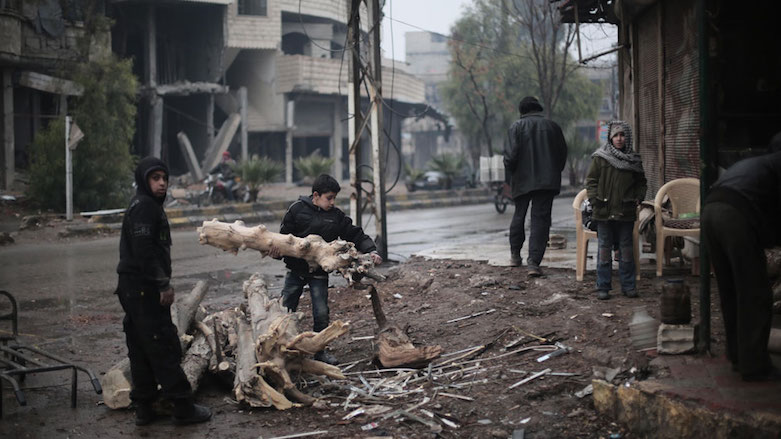UN calls for Syrian ceasefire, including Afrin

WASHINGTON DC, United States (Kurdistan 24) – As the Syrian regime continues its intense airstrikes against the population in rebel-held eastern Ghouta and Idlib governorate, the UN has called for “an immediate cessation of hostilities” throughout the country.
The ceasefire should be “for at least one month” to allow for the delivery of humanitarian aid and the evacuation of the sick and wounded, the international body said.
The UN Resident and Humanitarian Coordinator and UN Representatives in Syria issued a statement from Damascus on Tuesday, warning of the “dire consequences of the compounded humanitarian crisis in several parts of the country,” including Afrin, where Turkish forces have been attacking the previously stable Kurdish-majority canton since Jan. 20.
“The ongoing military operations” and “the reported blockage of exits” has “trapped many civilians” in Afrin, preventing them from moving to safer areas, the UN statement explained.
“So far, 380 families have reached surrounding villages and Aleppo city neighborhoods,” it reported, “while thousands of people have been displaced” within Afrin.
On Tuesday, the EU High Representative, Federica Mogherini, delivered a speech to the European Parliament on human rights in Turkey and its assault on Afrin.
She criticized “the negative trend of the human rights situation in the country,” while affirming that “human rights and fundamental freedoms should apply to all Turkish citizens.”
Speaking about Turkey’s attack on Afrin, which is aimed at the Kurdish People’s Protection Units (YPG), Mogherini warned Ankara, “The people of Syria cannot afford a new front and a new crisis.”
“We believe that all military action should focus on UN-listed terrorist organizations, not others,” as she strongly implied that Turkey’s claim the YPG is a legitimate terrorist target is unjustified.
The UN statement noted that some progress had been made in Hasakah, where aid deliveries have resumed “after a month in which most humanitarian assistance came to a complete halt.”
A UN Spokesperson explained to Kurdistan 24 that the problem came “from both local authorities in Qamishlo, who placed restrictions on national NGOs, and the Governor,” who would not provide the documentation to authorize aid deliveries.
“We now have an agreement with both parties to resume aid deliveries for two months,” the Spokesperson said. “But, what is needed is sustained access to people in need in camps and towns in the northeast.”
The UN statement also described the humanitarian situation in Raqqa, characterizing “the city’s devastation” as “unparalleled.”
“Many civilians trying to return home have been killed and injured by unexploded ordinance,” it stated. “Services are absent,” while “access for humanitarian workers to the city is almost impossible due to unsafe conditions.”
In Geneva, the UN-mandated “Independent International Commission of Inquiry on the Syrian Arab Republic” issued a statement on Tuesday, condemning the “scale and ferocity” of regime attacks in Idlib governorate and eastern Ghouta, including the bombing of three hospitals.
The Commission noted it had received “multiple reports” of the use of “weaponized chlorine” and it was investigating them.
The Chair of the Commission, Paulo Pinheiro, denounced the intensified violence, which he said makes “a mockery of the so-called ‘de-escalation zones,’ intended to protect civilians.”
Editing by Karzan Sulaivany
